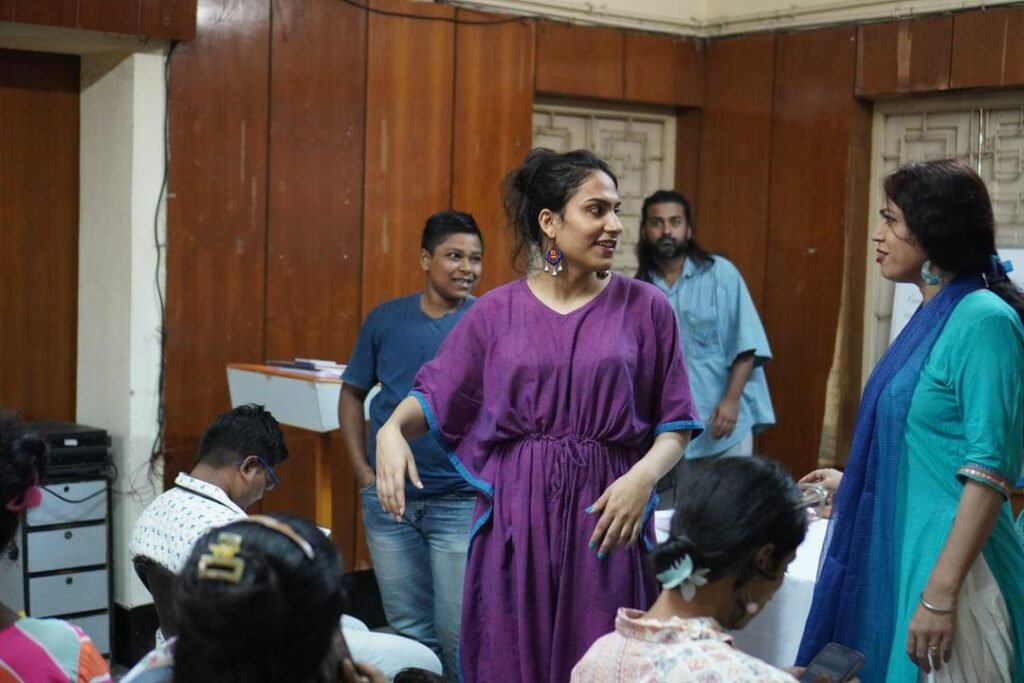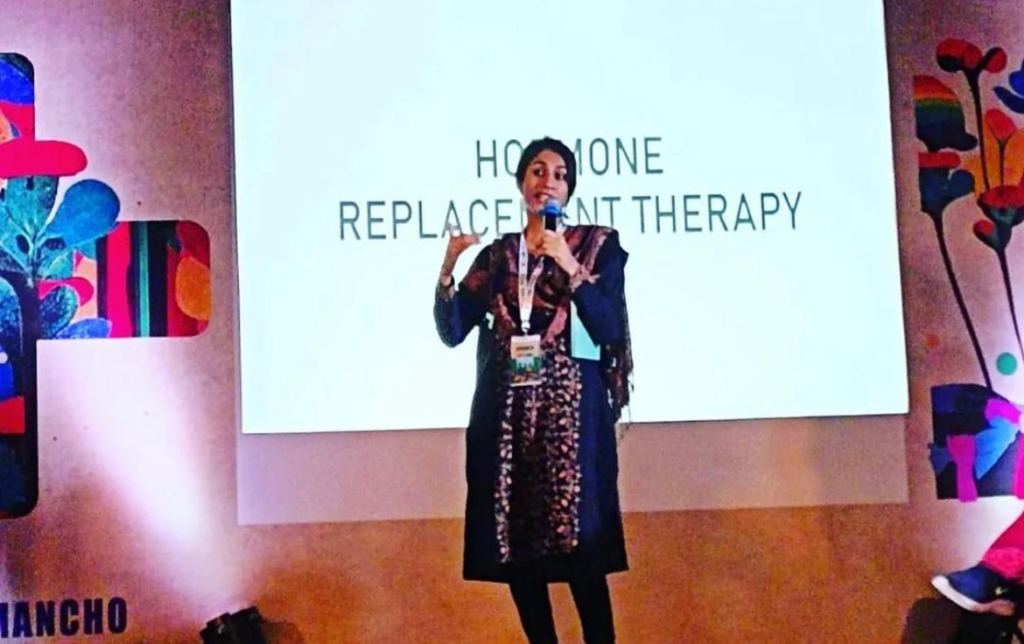No products in the cart.

Voices of Change: Aritra Chatterjee and the Quest for Trans-Affirmative Mental Health Solutions
In the landscape of Indian mental healthcare, where resources are often limited and marginalized voices frequently go unheard, Aritra stands out as a beacon of empathy, innovation, and unwavering advocacy. A clinical psychologist and behavior science consultant, Aritra’s unique perspective as a trans woman shapes her approach to mental healthcare, driving her to create more inclusive and accessible interventions for the LGBTQIA+ community.
Aritra’s journey began in government hospital settings, where she offered pro bono mental health services. “My experience has primarily been in low-resource settings, making the best of it,” she says.
Working at a government mental health training institute exposed her to a wide variety of cases, allowing her to develop interventions that were not only effective but also cost-efficient and sustainable.
Her identity as a trans woman plays a crucial role in her approach. “Having come from a marginalized identity myself, I understand the repercussions of marginalization and how it impacts access to mental healthcare,” Aritra explains. This understanding drives her to contextualize her clients’ experiences, ensuring that their social realities are acknowledged and addressed in her interventions.
Innovative solutions in behavioral science

At Atom EI, Aritra’s work as a behavior science consultant focuses on developing mental health content and interventions that are easily accessible. “The best part about the interventions we develop is that they are free to consume for a certain length of time and then available at a subsidized rate,” she notes. By making these resources available on platforms like Play Store and iOS, the Atom EI app helps ensure that people in the LGBTQIA+ community with access to the internet and devices that support this app, can make use of these tools and develop well-being habits.
She emphasizes the importance of representation in mental health content. “We have cases that represent queer and trans realities, starting with the usage of gender-neutral pronouns. I try to make the constraints of my workplace as inclusive as can be” she says, highlighting the need to include diverse experiences in mental health narratives.
This approach not only normalizes queer and trans identities but also provides a more relatable and supportive resource for those who might have had negative experiences with traditional mental health services.
Challenges in advocacy and education
Despite her efforts, Aritra faces significant challenges in advocating for queer and trans-affirmative practices within the Indian healthcare system. “One of the challenges is the reluctance of professionals to acknowledge that there is a problem,” she reveals.
The heavily heteronormative medical curriculum further exacerbates this issue, leaving little room for queer and trans experiences to be adequately addressed.
Aritra’s work in this area has been met with resistance, yet she remains undeterred. “I have tried to address mental healthcare discrimination, particularly targeted towards gender and sex minorities,” she asserts. Her MPhil thesis focused on microaggressions in clinical contexts, and she has been a vocal advocate against conversion therapy, validating the experiences of survivors and pushing for systemic change.
Empowering the grassroots with BDS Samobhabona

Aritra’s involvement with BDS Samobhabona has been particularly impactful. “I was really excited to create peer support providers out of grassroots trans community members,” she shares. This initiative aims to decentralize knowledge and empower community members to provide competent peer support, creating an alternative pathway to care that is more attuned to the realities of the community.
By disseminating knowledge to the grassroots, Aritra hopes to challenge the top-down framework often dominating mental healthcare. “We are creating resistance and facilitating pathways to care because these people are much closer to the ground realities,” she explains. This approach ensures that mental health interventions are more relevant and effective for those they aim to serve.
A vision for the future

Aritra’s intersectional identity as a trans woman and clinical psychologist provides her with a unique vantage point from which to critique and innovate within the mental healthcare system. “It shapes my entire worldview of how I look at mental healthcare and my ability to critique its dominant modes of delivery,” she says. Her experiences as both a service provider and service user inform her commitment to creating a more just and equitable system.
Looking ahead, Aritra envisions a network of like-minded professionals working together to build better systems of care for the LGBTQIA+ community. “I am deeply committed to creating an alternative discourse and building up resistance so that we can have better systems of care,” she declares.
Through her ongoing advocacy and innovative interventions, Aritra continues to pave the way for a more inclusive and compassionate mental healthcare system in India.








Pranesh Kar Roy
Extremely well written piece. We need more people like Aritra in the Mental Healthcare Profession.